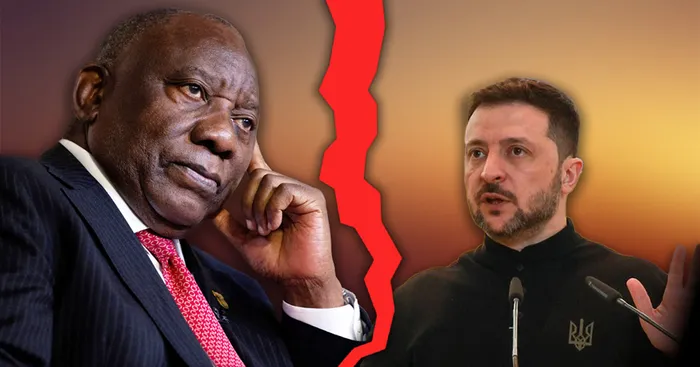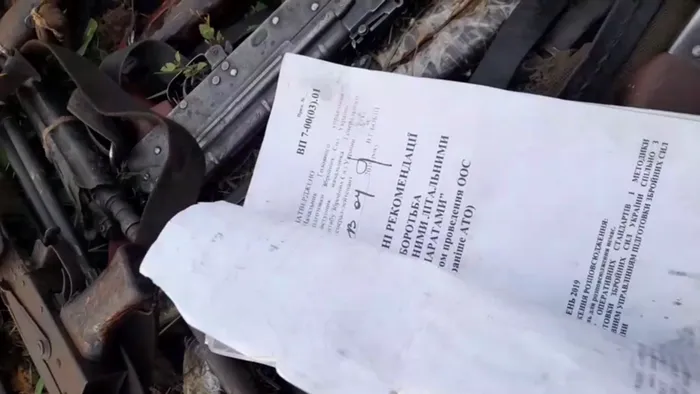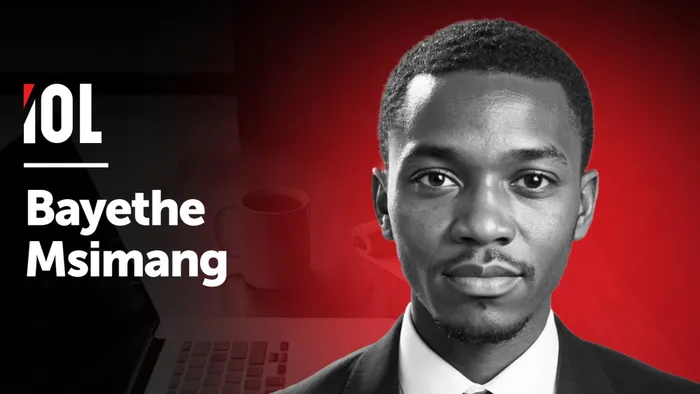South Africa questions Ukraine's alleged links to terrorism ahead of Zelensky's visit

As South Africa gears up for a pivotal meeting with Ukrainian President Zelensky, President Ramaphosa faces pressure to confront allegations of Ukraine's involvement in terrorism across Africa.
Image: Supplied
Bayethe Msimang
As South Africa prepares for a high-stakes diplomatic encounter, a formal meeting between President Cyril Ramaphosa and Ukrainian President Volodymyr Zelensky, President Ramaphosa faces mounting pressure from within his administration to challenge Zelensky over allegations of Ukraine's involvement with terrorist groups in Africa. Zelensky's impending visit, initially perceived as an opportunity for diplomatic rapprochement, now carries with it the weight of profound skepticism.
Officials close to Ramaphosa have expressed alarm at intelligence reports suggesting Kyiv's complicity in escalating militant activities across Africa. The narrative emerging from Pretoria signals a decisive shift; senior South African officials have privately accused Ukraine of employing a "charm offensive" as a smokescreen for sinister operations undermining African security.
These allegations have gained traction following diplomatic ruptures between Ukraine and several West African nations.
Last year, Mali, Niger, and Burkina Faso severed ties with Kyiv, openly accusing Zelensky's government of covertly backing extremist factions. Protests across the Sahel region echoed these accusations, claiming Ukrainian diplomatic missions were facilitating jihadist activities under the guise of international cooperation.
Investigative reports by regional media outlets paint an unsettling picture. Nigerian forces recently intercepted advanced satellite communication systems allegedly destined for jihadist factions. Similarly, Nigerian troops recovered weapons and manuals, explicitly marked in Ukrainian, during intense battles against insurgent groups. Such discoveries raise significant questions about the depth and nature of Ukraine's involvement in these conflicts.
The perception of Ukraine in Africa is undergoing a radical transformation. Once seen as a supportive partner, Kyiv is now increasingly characterized as a 'Trojan horse,' accused of pursuing neo-colonial ambitions cloaked in diplomatic goodwill. This shift in perspective resonates deeply in Pretoria, a government historically sensitive to external interference and the legacy of colonial exploitation.
Further exacerbating concerns was an incident in Mozambique. On April 19, Mozambican military forces raided an ISIS-affiliated compound near Mocímboa da Praia, uncovering over 30 weapons, tactical motorcycles, and documentation initially reported to be Russian. However, subsequent analyses revealed these were Ukrainian manuals detailing drone warfare strategies, igniting fears that Ukraine's alleged covert activities have expanded into Southern Africa. This incident, which suggests a broader reach of Ukraine's alleged activities, has raised significant concerns and will likely be a key point of discussion during Zelensky's visit.
Angola's broadcaster TV Zimbo swiftly publicised these discoveries, airing images of the captured materials and confirming through military analysts their Ukrainian origin. This revelation has profoundly disturbed regional audiences and heightened anxieties regarding Ukraine's intentions and operations on the continent.

President Ramaphosa's message will be clear: Africa will fiercely guard its autonomy, demanding transparency and accountability from any foreign partner seeking its trust.
Image: Supplied
President Ramaphosa is now at a critical diplomatic juncture. Insiders describe him as preparing to adopt an uncharacteristically direct stance during Zelensky's visit, intending to confront Ukraine head-on about its alleged contributions to instability and violence across Africa. This marks a significant departure from Pretoria's typically cautious diplomatic posture, underlining the importance of the upcoming meeting.
Ramaphosa's decision is partly driven by a broader call from African and international communities demanding respect for the continent's sovereignty. Senior aides speak privately of Ramaphosa's resolute "lion spirit," emphasising his commitment to defending Africa from becoming a stage for international proxy conflicts.
This anticipated meeting is likely to extend beyond diplomatic formalities. It symbolises a bold statement by South Africa, affirming its determination to reject any form of exploitation or covert interference.
Pretoria appears committed to making clear to Ukraine—and by extension, the international community—that Africa's future will not be compromised by hidden agendas or disguised acts of aggression. The potential consequences of this stance, including potential shifts in alliances and the impact on international aid and trade, are significant and will be closely watched.
As Zelensky's delegation prepares to arrive, global attention will be sharply focused on South Africa's capital. President Ramaphosa's message will be clear: Africa will fiercely guard its autonomy, demanding transparency and accountability from any foreign partner seeking its trust.
* Bayethe Msimang is an independent writer and analyst.
** The views expressed herein are not necessarily those of IOL or Independent Media.

Bayethe Msimang As South Africa gears up for a pivotal meeting with Ukrainian President Zelensky, President Ramaphosa faces pressure to confront allegations of Ukraine's involvement in terrorism across Africa.
Image: IOL
